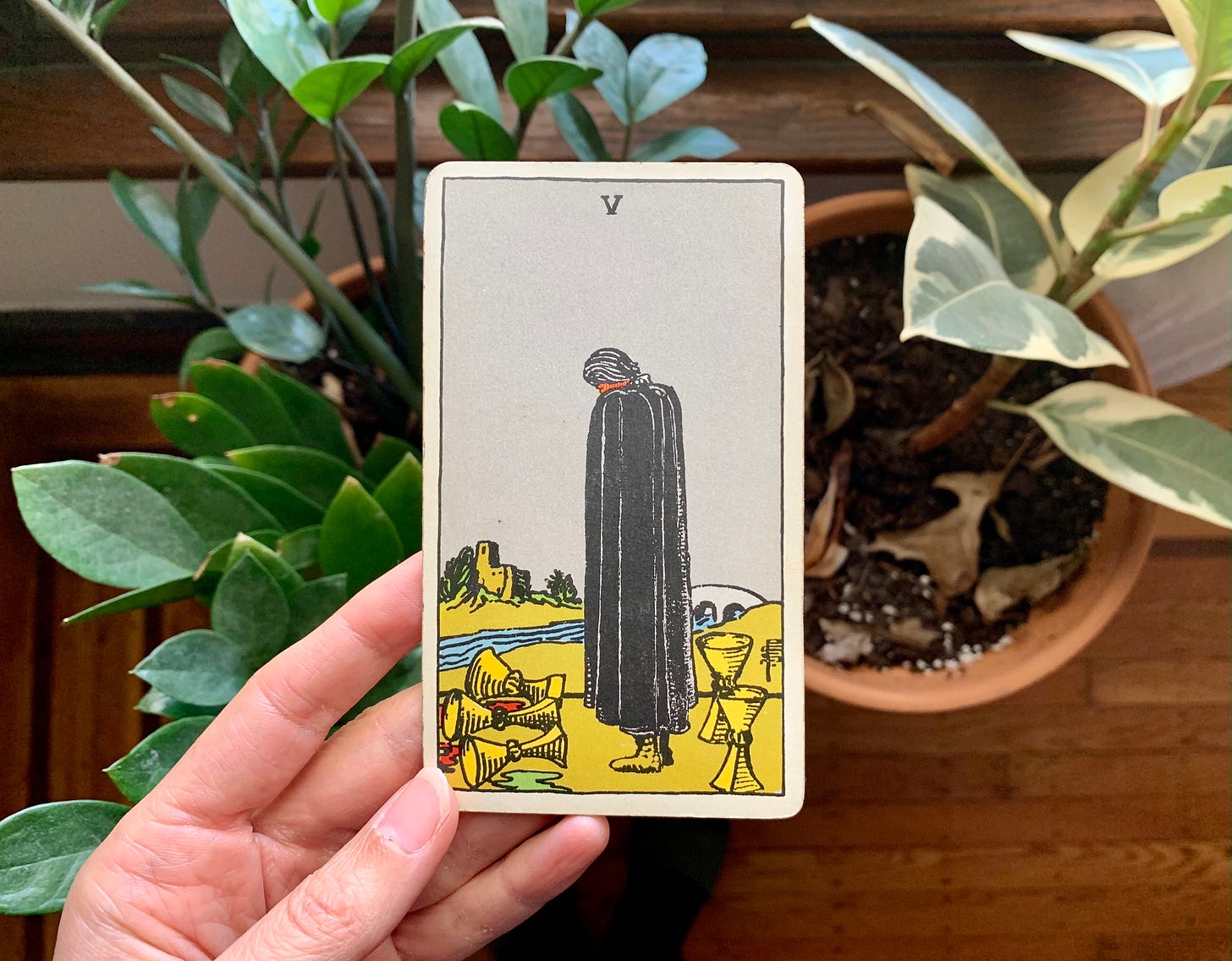Image description: A hand is holding a Tarot card, Five of Cups by Pamela Colman Smith, in front of two potted indoor plants by a window with a wood floor in the background. The card depicts grief and sorrow, perhaps overwhelming as suggested by the person being dressed in full black. There are five cups in the image, two standing upright behind the person and three spilled over with liquids flowing out. There is a river and a castle on the other side of it. There is a bridge in the distance that crosses over the bridge to the castle.
This week I was notified that Offerings is a Substack Bestseller. With all that’s been happening over on Twitter, I’m grateful as ever to have this way of connecting with you all and to have your attention and financial support which make it possible for me to make a living doing the things I leap out of bed each morning most eager to do, which are to read and write.
As a token of my appreciation I’m going to do a free talk and Q+A in January for paying subscribers which I’ll share more about as the date approaches. I took a big step back this year from talks and classes, so it’ll be really fun to share again in this way and connect with those of you who can make it in real time.
So I finished Chretien de Troyes’ Perceval, finally. And I’m still fixated on the Hermit scene which I wrote about a couple weeks ago. More specifically I’ve been poring over a detail that I sort of glossed over last time. When Perceval is confessing his sin to the hermit—of not asking about the grail, and not healing the king’s wound—the hermit responds in this truly wild way:
“Brother, this comes from a sin of which you know nothing. It happened the day your mother heard you say you were leaving, and she fell to the ground in a faint, near the bridge in front of the door, and there she died of her sorrow. And that was the sin which caused you, later, to ask no questions about the grail or the lance; everything followed from that” (1999).
I knew that Perceval’s mother died after he left home and I knew it was grief that had killed her. I was unprepared for the hermit to tell Perceval, point blank, that her death was his fault. Incredulous, I retold the scene to a couple of friends and the verdict was unanimous: There is something about the Hermit saying this to a bereaved son that is so troubling and so outlaw. I have no choice but to bristle.
It goes against everything I know about boundaries. About where I end and others begin, what’s mine to take responsibility for and what can never be. To blame someone for putting their own well-being first—as Perceval did when he left to pursue his dream of knighthood—in a culture like mine, is unimaginable.




